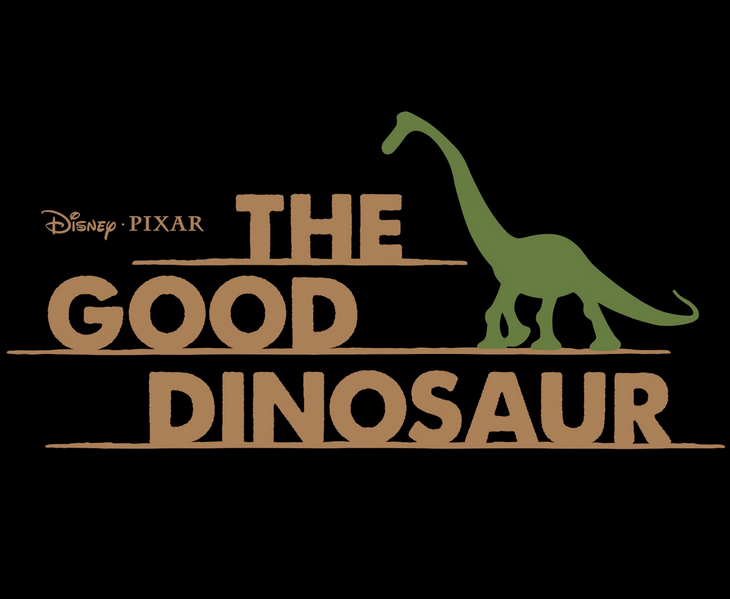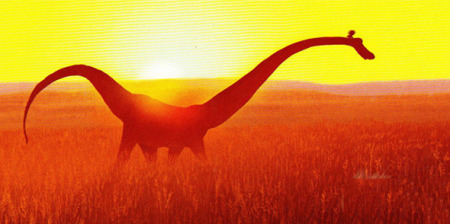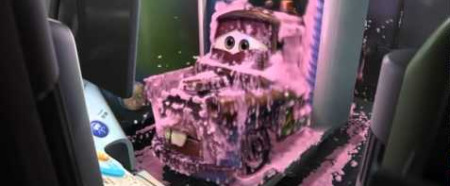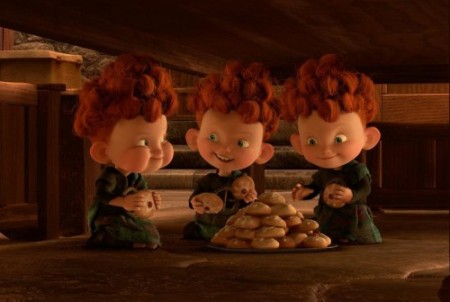Whither Pixar?
 Thursday, September 19, 2013 at 11:00PM
Thursday, September 19, 2013 at 11:00PM  Tim here, with what we might call, to steal a phrase, a burning question. Or at least a terrified, desperate question with rage tears streaming all down my face:
Tim here, with what we might call, to steal a phrase, a burning question. Or at least a terrified, desperate question with rage tears streaming all down my face:
What the hell is happening with Pixar Animation Studios?
By this point, I imagine most of you have heard the news that The Good Dinosaur, the studio’s second film out in the future, has been pushed from May, 2014, to November, 2015. This coming just a few weeks after the announcement that Bob Peterson, a writer and storyboard artist with the studio since forever, had been taken off what was to have been his solo directorial debut with that same project.

This has had all sorts of fun ramifications for the company, including the inexplicable Finding Nemo sequel Finding Dory being pushed to May, 2016, to make room for The Good Dinosaur. 2014, at the moment, will end up as the first calendar year since 2005 without a Pixar feature release, while 2015 will be the first year ever with two (assuming that Disney doesn’t end up announcing that Inside Out is to be rushed out ahead of schedule). The Good Dinosaur doesn’t have an announced director yet, and nobody knows whether or not Peterson is staying with the studio in any capacity.
It will be, of course, two years and change before any of us are actually able to judge whether any of this will be for the good of the film: it’s entirely possible that there really were irreconcilable story problems that needed far too much work and fresh blood than could happen in the initial time frame. One thing that’s almost certain, given how tight-lipped Disney and Pixar are about their internal politics, we’ll never know what Peterson’s The Good Dinosaur was meant to be like. That’s not really what I wanted to rant about, anyway.
The problem is that this isn’t at all new behavior: The Good Dinosaur is at least the fifth Pixar film to have a director changeover midway through production, and the fourth one in a row. 2011’s Cars 2, this year’s Monsters University, and most noisily, 2012’s Brave all went through the same upheaval, and they are all widely, even universally, regarded as being among the worst films in the studio’s output. So if it truly is the case that the executive logic is that those films needed to be “fixed”, the earlier versions must have been problematic indeed – who wants to imagine a version of Cars 2 that was worse than the one released to theaters?

It is very hard, in other words, to give the studio any benefit of the doubt at all. It’s been just a handful of years since the run of movies that ended with Toy Story 3 – the platonic ideal of an apparent cash-in sequel that turns out to have been motivated by real artistry and sensitivity – but the days when a commanding majority of critics and animation fans took the name of Pixar as an ironclad guarantee of quality seem like a distant, naïve memory, and developments like this are exactly the wrong sort of thing to restore that kind of faith. Once a creative haven, Pixar has become mired in safety-tested formulas and groupthink, less invested in protecting its brand name from failure than in insulating it from any kind of unconventional thinking. Would Brenda Chapman’s Brave have been any good? Who knows? What’s certain is that it would have felt less like every other Pixar film, and it’s hard not to want to know what that would be like.

To be fair, this isn’t just Pixar’s problem. Big-budget filmmaking as a whole feels more indebted to safety-conscious decisions that are designed more with an eye to making sure that new movies feel as much as possible like other movies that were already hits (the careful buffering out of individual personalities in the Harry Potter films and the Marvel Cinematic Universe leap to mind), and the biggest budgets only ever go to sequels, or to adaptations of road-tested stories. In the wake of The Lone Ranger, it’s hard to feel like the studios don’t have a reason for this conservatism, but anodyne, one-size-fits-all movies (now obliged to play in cultures as widely different as the American Midwest and urban China) are boring, even the well-made ones.
Until the last couple of years, I’d have never called any Pixar film “boring”. Even Cars 2 can’t be rightfully described that way, though most other negative adjectives fit just fine. And maybe this is all paranoia: maybe The Good Dinosaur really did have huge problems, and the final result is now going to be better than any of us can possibly imagine. But that’s not what Pixar’s rhetoric is saying. Instead, they’re telling us that they needed to beat The Good Dinosaur into a form that everybody could sign off on, admitting in almost so many words that this personal project had to be run through a committee in order to make sure it felt like everything else the studio has made. Maybe the results will be worth it, but it doesn’t sound to me like it’s going to be good for the imagination of the film’s creators or the imagination of its audience, and it’s the continuation of a trend that’s made the former best movie studio of the 2000s feel increasingly industrialized and lifelessly market-driven.


